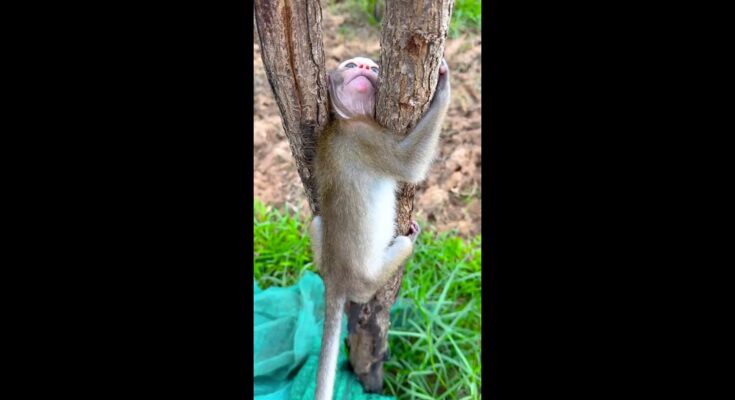A painful scene shocked everyone.
A poor monkey got its neck trapped in a tree.
It struggled to break free.
But the harder it pulled, the tighter it became.
The monkey cried out in fear.
Its small body shook with panic.
The sound of its helpless voice broke hearts.
Monkeys are among the most playful animals in the world, and anyone who has spent time watching them knows how much they enjoy climbing, chasing, and rolling around. Their playful behavior is not just for entertainment—it serves important purposes in their growth, survival, and social bonding.
From an early age, baby monkeys use play to develop their physical skills. Climbing trees, swinging from branches, and chasing one another helps them build strength and coordination. These activities also prepare them for the challenges of the wild, teaching them how to escape predators, find food, and navigate their environment.
Play also strengthens social bonds. When monkeys wrestle, chase, or groom each other in between games, they build trust and relationships within the group. This social interaction is critical for survival, as monkeys live in groups where cooperation and communication are essential.
Another reason monkeys play so much is emotional health. Just like human children, monkeys experience joy and happiness when they are active. Their playful behavior is a way of expressing energy, curiosity, and affection. It reduces stress, encourages learning, and keeps their minds sharp.
Scientists often point out that monkeys share many traits with humans, and their love for play is one of the clearest examples. Watching them reminds us that play is not just a pastime—it is an important part of life, growth, and connection.
In the end, monkeys play because it makes them stronger, smarter, and happier. Their joyful nature is a reflection of the deep intelligence and emotions they carry, making them one of the most fascinating animals to observe.



